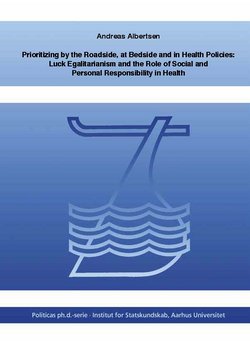Andreas Albertsen
Prioritizing by the Roadside, at Bedside and in Health Policies: Luck Egalitarianism and the Role of Social and Personal Responsibility in Health

This dissertation addresses what it means for distributions of health to be just or unjust. It applies luck egalitarianism, an influential theory of distributive justice, to such questions. As a responsibility-sensitive theory, luck egalitarianism allows choices for which people are responsible to affect how they fare. This strikes a chord with current debates about personal responsibility in health.
Luck egalitarianism is applied to three areas: oral health, liver transplantations and public health initiatives related to the social determinants in health. Drawing on this the thesis presents a luck egalitarian framework with three distinct features: it addresses health inequalities rather than healthcare provision. In a pluralistic fashion it acknowledges the importance of values other than distributive justice and assesses health distributions in light of distributive unfairness in other spheres of life.
This luck egalitarian approach moves the debate beyond the discussion about denying treatment, which has preoccupied much of the literature. Furthermore it broadens the debate to encompass health issues beyond the provision of healthcare. It thus offers a plurality of ways we could hold people responsible and has a keen eye for the social factors which influence people’s health. Such a luck egalitarianism is a viable approach to distributive justice in health.
![]() Ophavsretten tilhører Politica. Materialet må ikke bruges eller distribueres i kommercielt øjemed.
Ophavsretten tilhører Politica. Materialet må ikke bruges eller distribueres i kommercielt øjemed.